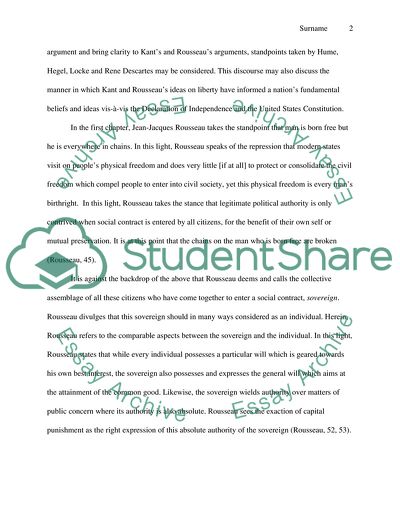Cite this document
(The Idea of Freedom and Liberty in Rousseau and Kant Essay Example | Topics and Well Written Essays - 2500 words, n.d.)
The Idea of Freedom and Liberty in Rousseau and Kant Essay Example | Topics and Well Written Essays - 2500 words. https://studentshare.org/philosophy/1813291-the-idea-of-freedom-and-liberty-in-rousseau-and-kant
The Idea of Freedom and Liberty in Rousseau and Kant Essay Example | Topics and Well Written Essays - 2500 words. https://studentshare.org/philosophy/1813291-the-idea-of-freedom-and-liberty-in-rousseau-and-kant
(The Idea of Freedom and Liberty in Rousseau and Kant Essay Example | Topics and Well Written Essays - 2500 Words)
The Idea of Freedom and Liberty in Rousseau and Kant Essay Example | Topics and Well Written Essays - 2500 Words. https://studentshare.org/philosophy/1813291-the-idea-of-freedom-and-liberty-in-rousseau-and-kant.
The Idea of Freedom and Liberty in Rousseau and Kant Essay Example | Topics and Well Written Essays - 2500 Words. https://studentshare.org/philosophy/1813291-the-idea-of-freedom-and-liberty-in-rousseau-and-kant.
“The Idea of Freedom and Liberty in Rousseau and Kant Essay Example | Topics and Well Written Essays - 2500 Words”. https://studentshare.org/philosophy/1813291-the-idea-of-freedom-and-liberty-in-rousseau-and-kant.


